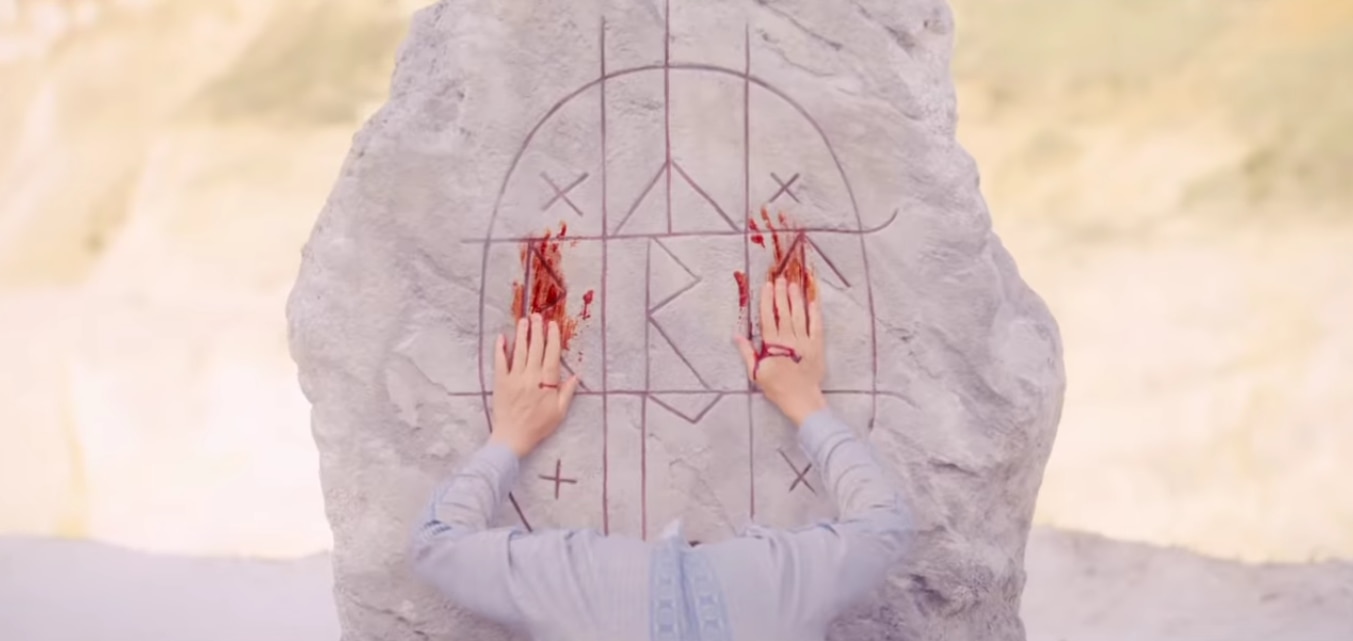Create a free profile to get unlimited access to exclusive videos, sweepstakes, and more!
Midsommar stuns in first reviews of Hereditary's ambitious follow-up

Filmmaker Ari Aster took the horror world by storm last year with his debut feature film Hereditary. The cultish scarefest featured Toni Collette giving an unforgettable performance and some shocking imagery that combined to make the familial tale of loss into one of the best recent horror films. Only a year later, Aster has written and directed a sophomore effort, Midsommar—-and the reviews are already out.
Midsommar, a bright and sunny descent into madness featuring Florence Pugh, Will Poulter, William Jackson Harper, and Jack Reynor, takes place at a mysterious Swedish festival where cute-folksy quickly turns into oh-god-we-have-to-leave-folksy. Critics are already praising the film as a worthy follow-up to Hereditary.
Let’s see what they have to say.
Richard Lawson of Vanity Fair admired the humor inside the "washed-out horror," explaining that this film is just the next step in how Aster tackles grief through the world of genre films. And the next step bleeds over into performances as well. Pugh’s performance is a "fine companion piece to Toni Collette’s in Hereditary: breakneck and yet measured, a comedy of human foible and messy impulse," Lawson writes. While the polarizing, oddball film will likely "alienate a lot of people," but the film has a lot to say, the boldness to say it well, and "rattles you like a shake to the shoulders."
Birth.Movies.Death’s Scott Wampler agrees, writing that all of Midsommar’s myriad facets make it feel like a "break-up melodrama tossed in a blender with the folk horror sub-genre." And for those worried about the use of the term "melodrama," don’t worry. As Wampler writes, "Midsommar contains several sequences that will, in no uncertain terms, f*** up an audience member who doesn't watch a lot of horror movies." Even if fans are gorehounds, it will prove an unnerving and nightmare-inducing watch as Aster grows as a filmmaker.
Variety’s Andrew Barker, however, thinks that Aster’s ambitions outpaced his abilities on the follow-up. Saying that Midsommar isn't "as impactful, as emotional, or as frightening as the director’s debut," Barker still finds the film to be an "admirably strange, thematically muddled curiosity." Pugh is praised even here, finding universal acclaim for a performance that requires "ferocious commitment." However, Barker found the film too long, too unfocused—though when the finale struck, he was still on board.
Eric Kohn at IndieWire also falls on the side of positive-but-mixed, calling Midsommar "the kind of mad science filmmaking worth rooting for." Basically, while Aster "may not land every big swing," the beautiful visuals, absorbing score, and incredible performances suck the audience in and never release them. How could they get free from the "hodgepodge of haunting pageantries and ritualistic prayer, outrageous fertility rituals, and plenty of psychedelic dance numbers?" There’s just too much strangeness in this horror film to wake up from the dream. With an imperfect yet "intimate spookiness," Midsommar marks a solid move for Aster.
Finally, The Hollywood Reporter’s John DeFore writes that Aster’s "horror equivalent of a destination wedding" is less scary than his first film, but shows an impressive range for the burgeoning director. With "Kubrickian visions" at play during the exotic rituals and bad drug trips, the slow-burn film is utterly unsettling—which might be a bit more sophisticated than the hardcore scares of Hereditary, but require a higher barrier of entry for some horror junkies.
Midsommar hits theaters on July 3.


























